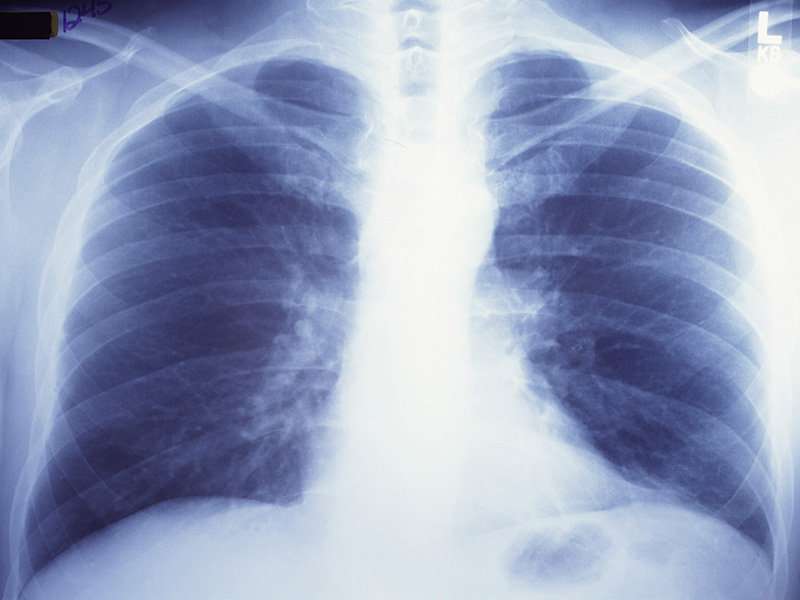Obesity Ups Odds for Dangerous Lung Clots in COVID-19 Patients
 By Steven Reinberg
By Steven Reinberg
HealthDay Reporter
TUESDAY, Might 19, 2020 (HealthDay News) — Weight problems tends to make COVID-19 worse and may possibly lead to fatal blood clots in the lungs, a new research finds.
The scientists said that obese sufferers with COVID-19 may possibly have approximately 3 instances the chance of acquiring what is regarded as a pulmonary embolism.
“Clinicians can use our conclusions to help in identifying which sufferers should really have analysis for pulmonary embolism with pulmonary CT angiography, as the signs and symptoms for COVID-19 and pulmonary embolism overlap,” said lead researcher Dr. Neo Poyiadi, from the division of diagnostic radiology at Henry Ford Clinic in Detroit.
“Early detection of pulmonary embolism can make it possible for prompt treatment method with anticoagulation and decrease clinical problems,” he said.
Hospitalized obese sufferers with COVID-19 should really be evaluated for raises in clotting indicated by a climbing D-dimer — a blood exam for clotting.
According to the research, 22% of 328 sufferers struggling from COVID-19 who had a CT scan angiography had a pulmonary embolism.
Scientists also identified that sufferers getting statins to reduced cholesterol just before coming down with COVID-19 had been significantly less possible to have a pulmonary embolism.
“Further more research are desired to figure out if statins have a protective outcome towards pulmonary embolism in COVID-19 sufferers,” Poyiadi said.
Poyiadi added that a modern research suggests that COVID-19 sufferers should really be put on blood thinners to stop clotting.
Weight problems may possibly make COVID-19 worse simply because it is really involved with an improve in swelling. Inflammation also raises the chance of clotting.
The report was published on-line Might 14 in the journal Radiology.
Dr. Marc Siegel is a professor of medication at NYU Langone Clinical Middle in New York Metropolis. He said, “This research underscores a place which is turning out to be a lot more greatly regarded about COVID-19 — that obesity prospects to an inflammatory cascade. We know that inflammatory chemical substances improve with obesity. That’s the suspected mechanism of why obese sufferers are a lot more at chance for troubles.”
Inflammation can lead to blood clots, while which is not been tested, he famous.
“The troubles of COVID-19 that we have been observing are swelling and a cytokine storm, which results in swelling in the arteries and blood clots throughout the human body — and obesity is a culprit in superior-chance sufferers,” Siegel said.
“To say which is why we are observing a lot more pulmonary embolism in obese sufferers is plausible. It really is early tiny figures, but it is really a really essential getting and it is really not astonishing,” he said.
What is astonishing is it appears like using statins may possibly be handy. Statins are anti-inflammatories, Siegel famous.
But whether or not statins are protective is one thing that would have to be carefully examined, he said. There’s no clear-reduce reason to get started obese sufferers on statins if they weren’t currently getting them when they had been admitted to the medical center, he added.
Obese sufferers with COVID-19 want the same treatment as other sufferers, Siegel said. That features anticoagulation. Many of the troubles of COVID-19 appear to be brought on by clotting, and starting up sufferers on blood thinners may possibly turn out to be a standard treatment method.
“We are currently starting up to search at preventative anticoagulation,” he said. “It really is currently one thing we are really conscious of, but this research adds evidence to a direct correlation in between obesity and blood clots, which is what is new here.”

Copyright © 2020 HealthDay. All rights reserved.
Problem
What is the Wuhan coronavirus?
See Answer
References
Sources: Neo Poyiadji, M.D., diagnostic radiology, Henry Ford Clinic, Detroit, Mich. Marc Siegel, M.D., professor, medication, NYU Langone Clinical Middle, New York Metropolis Might 14, 2020, Radiology, on-line

